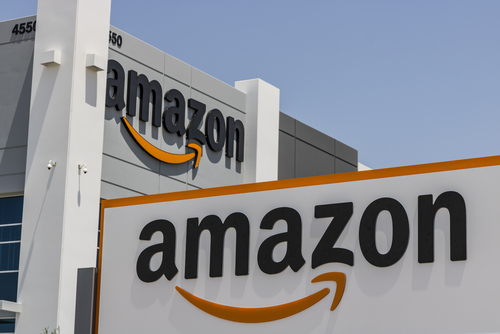



Get new exclusive access to healthcare business reports & breaking news




Amazon made waves in the healthcare industry recently by acquiring online pharmacy PillPack in a deal worth $1 billion. While the retail giant has already entered industries including groceries and healthcare, the move represents its first venture into prescription medicine.
PillPack provides online pharmacy services designed to offer medications in personalized packets. Through online services, the firm coordinates and designs shipments so consumers can track and manage their dosage efficiently.
Founded in February 2013, PillPack had already raised over $4 million in funding by July of the same year, and launched its online pharmacy in February 2014. The product caught on fast, and the start-up shipped more than a million drug packages by June 2015.
The Boston-based startup has pharmacy licenses in all 50 states in the US – meaning Amazon now has production and distribution capabilities that competitors have spent years developing.
Amazon plans to preserve the PillPack brand name going forward.
The acquisition of online pharmacy PillPack means Amazon is venturing into the $560 billion prescription drug market for the first time.
The move is also indicative of Amazon’s growing presence in the healthcare sector, after the announcement of a joint venture with Berkshire Hathaway and JPMorgan Chase & Co. to reduce wasteful spending, earlier this year. Amazon also tried to disrupt the healthcare market in 1999 when it purchased a 40% stake in drugstore.com – however, that venture was deemed a failure.
Shares of competitor drugstores tumbled significantly in the aftermath of the acquisition, as industry analysts predict the disruption typical of when Amazon enters a new market.
Shares of Walgreens Boots Alliance and Rite Aid tumbled by more than 9%, while CVS Health experienced a 6% loss in value, representing over $11 billion lost in market value for the three companies.
However, Walgreens CEO Stefano Pessina appears bullish about his company’s role in the drug industry going forward. “Yes, it’s a declaration of intent from Amazon,” he said to analysts according to a transcript from FactSet. “[But] the pharmacy world is much more complex than the delivery of a certain [pills or] packages.”
A CVS spokesperson, too, played down the impact of Amazon’s entry.
“We believe that we are well-positioned in the market and ahead in this area”, said the spokeswoman. “Keep in mind, that we have not seen a large shift of patients that are looking for their medications to be delivered versus coming to a retail pharmacy.”
While the move may be perceived as a threat to competitors, customers welcomed the agreement, according to a GlobalData survey.
According to the report, 54% of Americans are happy about the deal, while fewer than 25% disapprove. This is likely in anticipation of reduced prices, says Neil Saunders, managing director of GlobalData Retail.
“When Amazon sneezes, everybody else catches a cold,” according to Joseph Feldman, an analyst at Telsey Advisory. “And I think that’s more likely than not what you’re going to see today.”
However, the healthcare industry may prove more difficult to disrupt than other industries Amazon has entered in the past, according to Rosemarie Day, one of the founding leaders of the Massachusetts Health Connector.
Day notes that consumers tend to be highly protective of their health information, and how the personalized recommendations Amazon is known for will only serve as a reminder of privacy concerns. Furthermore, she notes how the healthcare industry is notorious for being slow to adopt change. “Despite the impetus for change,” she writes, “the healthcare industry is just too firmly established in the way it now does things.”
Regardless of whether Amazon will succeed in disrupting the prescription drug industry with its online pharmacy acquisition, drugstores are very much in the process of defending against the retail giant.
CVS is currently in the process of acquiring health insurance firm Aetna for $69 billion, in a merger that would combine its retail pharmacies, clinics, and benefits manager Caremark with Aetna’s insurance plans.
Walgreens is reportedly partnering with a number of firms in healthcare including lab testing provider LabCorp and health insurers Humana and UnitedHealth Group.
Interested in learning more about major mergers and acquisitions? Read more here.